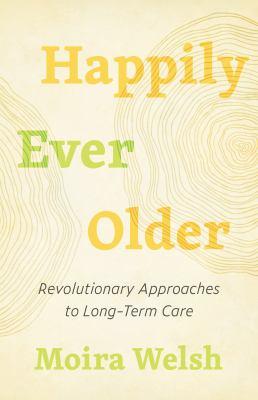
Happily ever older : revolutionary approaches to long-term care
Reporter Moira Welsh has spent years investigating retirement homes and long-term care facilities and wants to tell the dangerous stories. Not the accounts of falls or bedsores or overmedication, but of seniors living with purpose and energy and love. Stories that could change the status quo. Welsh takes readers across North America and into Europe on a whirlwind tour of facilities with novel approaches to community living, including a day program in a fake town out of the 1950s, a residence where seniors school their student roommates in beer pong, and an aging-in-place community in a forest where everyone seems to have a pet or a garden or both. The COVID-19 pandemic cruelly showed us that social isolation is debilitating, and Welsh tells stories of elders living with friendship, new and old, in their later years. Happily Ever Older is a warm, inspiring blueprint for change, proof that instead of warehousing seniors, we can create a future with strong social connections and a reason to go on living.
Available Copies by Location
| Location | |
|---|---|
| Stamford | Available |
Browse Related Items
- ISBN: 9781770415218
- Physical Description xxvi, 245 pages ; 22 cm
- Publisher [Place of publication not identified] : [publisher not identified], 2021.
Content descriptions
| Bibliography, etc. Note: | Includes bibliographical references and index. |
Additional Information



